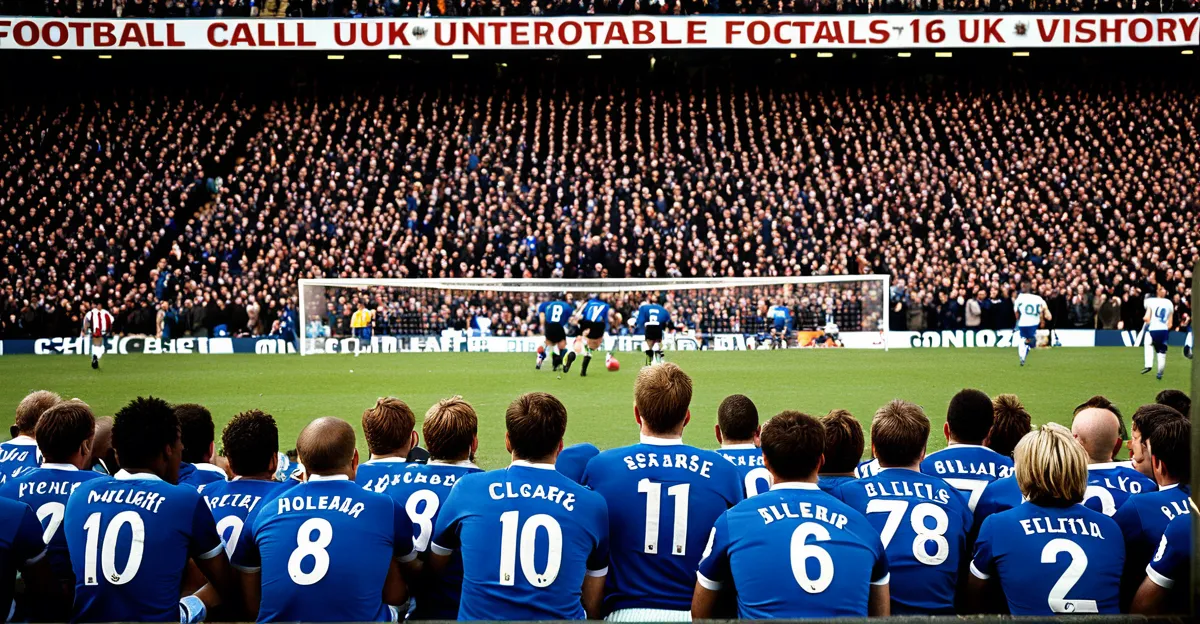Defining Memorable UK Football Moments
Memorable UK football moments are defined by their lasting impact on football history highlights and the deep emotional connections they create among fans. These moments often combine dramatic outcomes, high stakes, and displays of exceptional skill or resilience. To qualify as iconic UK football events, a moment must resonate well beyond the final whistle, shaping the narrative of both club and national team achievements.
The criteria for what makes a football moment memorable include the context in which it occurs: historical significance, rarity, and timing during pivotal matches or tournaments. For example, a last-minute goal in a crucial final not only impacts the scoreboard but also elevates the event’s legacy. Furthermore, moments that spark widespread celebration or reflection among supporters significantly contribute to their memorability.
Have you seen this : What are the psychological effects of football on UK fans?
Blending club triumphs with national successes enriches this tapestry. While club wins bring community pride, national team achievements often unite the country, enhancing collective memory. Such moments fuel developments in the sport, inspiring future generations and prompting tactical evolutions.
Ultimately, the power of these moments lies in their ability to transcend sport, embedding themselves as defining instances in the cultural fabric of UK football.
Have you seen this : How Can English Football Transform Its Youth Development Programs?
Legendary National Team Triumphs
The UK national football team historic moments are highlighted by England’s unforgettable 1966 World Cup victory. Central to this triumph were iconic players like Bobby Charlton and Geoff Hurst, whose skills and determination culminated in the team winning the tournament on home soil. England’s success was not just about the trophy, but the lasting legacy it created, inspiring generations and elevating football’s status in the UK.
Northern Ireland’s breakthrough came with their remarkable 1982 World Cup run, where they defied expectations by defeating the reigning champions, Spain. This victory remains one of the most famous UK international football victories, showcasing grit and national pride that united fans across the region.
Other UK nations have also carved their own remarkable moments, reinforcing the importance of football as a source of identity and pride. Key figures in these stories often went beyond their athletic contributions, shaping the spirit and culture of their nations. From tactical masterminds to players with inspiring leadership, their roles have been instrumental in solidifying football’s powerful place in UK heritage.
These moments continue to resonate, reminding us of the deep connection between football and national pride.
Iconic Club Victories and Matches
Some of the most historic UK club football moments are etched in fans’ memories for their breathtaking drama and pivotal impact on the sport. One standout is Liverpool’s 2005 Champions League comeback in Istanbul. Trailing 3-0 at halftime against AC Milan, Liverpool staged one of the greatest comebacks in football history, equalising within minutes in the second half and ultimately winning on penalties. This match is frequently cited as a defining moment in memorable UK football finals.
Another iconic event is Manchester United’s 1999 treble campaign, culminating in a last-minute late goal in the Champions League final against Bayern Munich. This victory secured the Premier League, FA Cup, and Champions League titles in one season—a feat unmatched in English football. The 1999 final remains a gold standard for drama and resilience in famous English football matches.
The FA Cup also provides tales of magic, such as Arsenal’s “Invincibles” season, where their dominance culminated in memorable cup clashes. Additionally, classic rivalries and notable upsets underline the unpredictable excitement of UK football, contributing richly to its storied heritage. These events demonstrate why UK club football is celebrated worldwide.
Individual Brilliance and Record-Breaking Feats
The history of legendary UK football players is rich with moments of unparalleled individual brilliance. Wayne Rooney, for instance, holds the prestigious title of England’s all-time top scorer, a record-breaking UK football achievement that underscores his impact on the national stage. Rooney’s consistency and knack for crucial goals have set a high bar for aspiring talents.
George Best, another iconic figure, dazzled fans with his mesmerizing dribbling and flair, securing his place among football’s greats. His standout performances throughout the 1960s and 70s left an indelible mark, inspiring generations and highlighting the power of individual skill in team success.
Although not a UK player, Diego Maradona’s historic moments at Wembley—his “Hand of God” goal and the subsequent “Goal of the Century”—are often referenced when discussing individual football milestones in the UK context. These moments stress the global impact of football’s finest talents and the ongoing pursuit of excellence by UK players aiming to etch their own legendary moments into the sport’s history.
Controversial and Defining Moments
Controversial UK football moments have long sparked debate among fans, players, and officials alike. One defining element of recent years has been the integration of VAR decisions. While VAR aims to increase accuracy during crucial games, its influence in iconic matches has been both praised and criticized. For instance, the use of VAR has overturned pivotal goals or penalty calls, instantly altering match outcomes and stirring widespread discussion.
Notorious red cards and own goals are another category of infamous football incidents in the UK. A single referee decision to send off a player or the rare blunder of scoring against one’s own team can shift a whole match’s momentum. These occurrences highlight the delicate balance referees must maintain and how decision-changing moments football UK continue to impact team morale and tournament success.
Beyond the pitch, football in the UK has also intersected with political and cultural events, notably the Hillsborough tragedy. This catastrophic event defined not only football safety protocols but also highlighted social issues tied to football culture. Such moments exemplify how football transcends sport, becoming deeply woven into national history and collective memory.


